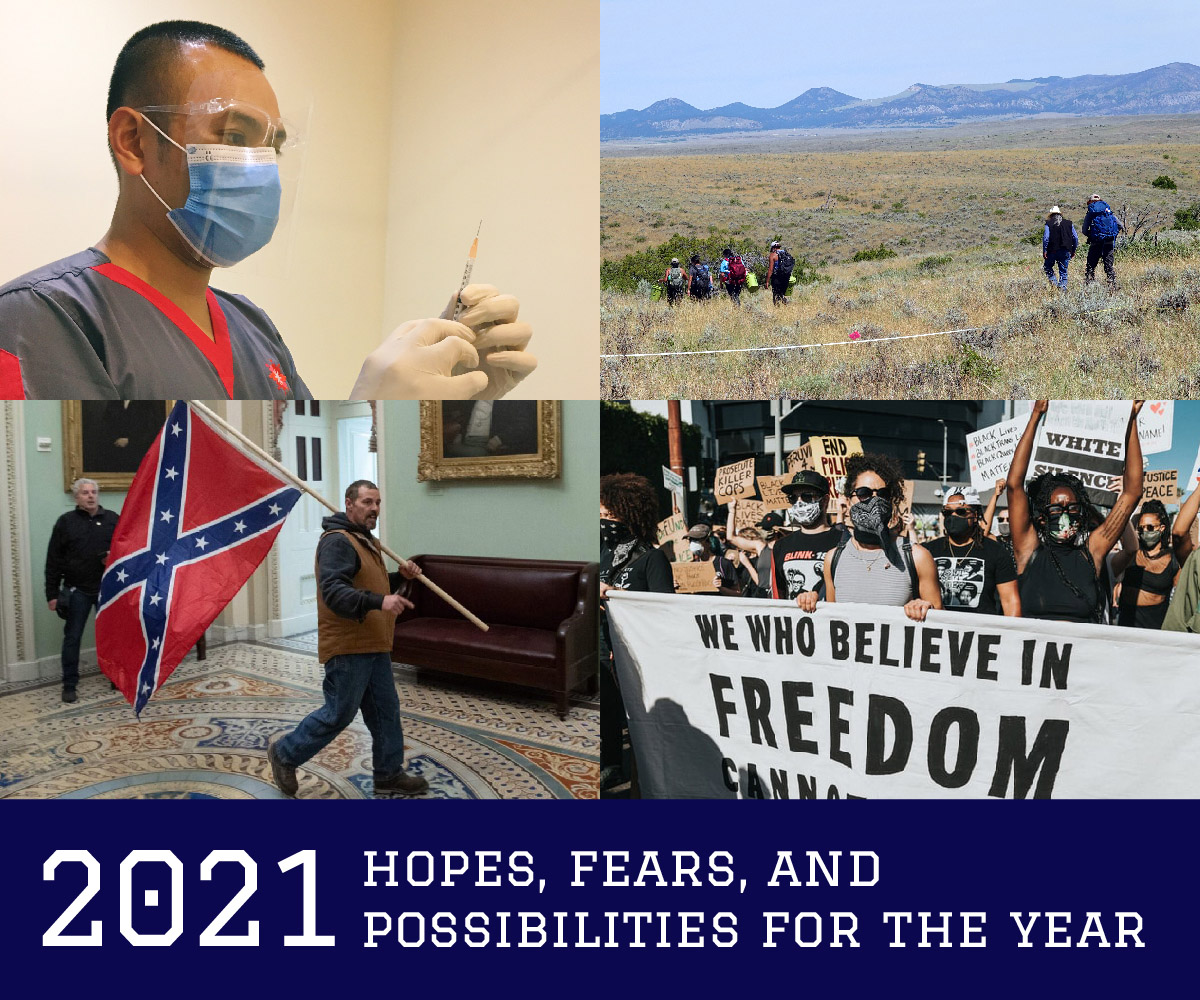
Photo credits, clockwise from upper left: Kristine Wook, Cristina Eisenberg, Nathen Domlo, wusa9.com
By Claudia F. Saleeby Savage
Dearest daughter,
A few days ago was the Martin Luther King, Jr. holiday here in the U.S. and we took time to sit in the living room and read his entire speech written from a Birmingham Jail on April 16, 1963. King’s words made you ask me questions about faith, Christianity, and the violence still present in America. You may be only 8, but I don’t spare you the truth about most things. King wrote about the violence being committed against the Black community in the south—dogs biting young girls, young boys and elders being whipped. When King said, “One day the South will recognize its true heroes,” I read it twice. We talked about the protestors around the world still trying to obtain equality not just under the law but in the eyes of their neighbors.
It strikes me as significant that Martin Luther King Jr.’s holiday falls on the day of your great-grandmother Frances’s birthday. She died at 102 a few years ago. Nanny, as we called her, lost several siblings very young, had relatives die in the Holocaust, and thought that the Jewish Orthodox religion was sexist. Though she married a Jewish Italian man and grew up in a Jewish enclave in the Bronx, she never went to temple. She was secular, but tribal. When your aunt married an Italian Catholic and baptized her son, Nanny didn’t speak to her for months. It was one thing not to go to temple, but quite another to “stray” so far from your community that you are unrecognizable.
I think about these ideas of community and tribalism a lot lately. As you know, I’ve been working for several years on a book about Syrian refugees. I’ve read dozens of memoirs and histories about the region. Your Grandpa Bill’s family came from Lebanon. There are so many questions I’m trying to answer in the book I’m writing—not only for me, but for you. The attack on our nation’s capital this past January 6, 2021, made everything feel more urgent in my mind. Even after all my reading and discussions with Syrian friends and refugee workers, I don’t claim to fully understand the war in Syria, though I weep for their suffering. But, watching the attack on the capitol here, in the U.S., made me feel that no country is immune from tribalism. And, worse, it is far too easy to justify any action, no matter how horrendous.
King famously said, “injustice anywhere is a threat to justice everywhere.” What does this mean to Americans right now as we watch our neighbors die from COVID-19? As we watch our neighbors die from police violence? As we watch our neighbors try to destroy the very glue holding this crazy country together? And, what about those in other countries? Do we take time to weep for them?
On days that I don’t watch the news and focus instead on calling your aunts, calling your cousins, and talking with my neighbors across the street, I feel not only gratitude, but hope. There is so much we can still do to improve the world.
Your great-grandmother lived in a world where being tribal meant survival, at least for a time. There isn’t a person on this planet who doesn’t have ancestors who thought sticking together with those of the same religion/economic class/region/background meant survival. Maybe I’m naïve, or just a mother in love with her child, but when I look at you with ancestors representing almost every continent, I see the future and it looks better than my past. Already, at 8, you see equity and love as obvious. You write notes for lonely neighbors. You want to bake extra bread for whomever needs it. You love wild places and the wild creatures that live there. You believe in kindness and life. You see injustice or, even, unfairness and are outraged.
Growing up I was often told to “get tougher” or “grow a thicker skin,” and that I would not survive with such a soft heart. But, now, with you, I say the opposite. Do not let your heart close in these horrible times or in the horrible times to come. Do not despair at saving the whole planet when you can build a garden and welcome back the bees through the flowers you chose. If this year has taught you nothing, know that every choice you make does have a consequence, it does make a difference. It matters that we pay the small farm and Native fishermen a year ahead for our vegetables and fish. It matters that we bring out extra bags for our neighbors who love our ripe plums but do not have the English skills to ask for some. Always notice the friend who is too proud to ask for help. Give without her asking. Always pick up the litter on your daily walk so that the next person will be able to walk by focusing on the hummingbird’s song.
Give until your heart expands against your ribs. There are others who will be beside you. Others who are as strong as you are. Those big-hearted ones are your tribe, dear daughter. You can be the hero of your own precious life.
Love,
mama

